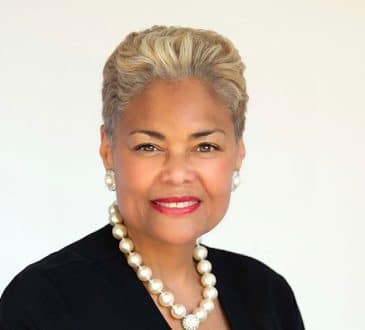Helping Those Who Served: Five Ways Businesses Can Honor Veterans

After years serving their country, it can be difficult for veterans of the U.S. Armed Forces to move on to careers beyond the military. Transitioning to the civilian workforce is not as simple as just changing jobs, it can be like entering a whole new world for veterans.
Veterans deserve special treatment and opportunities after serving their country. Business executives can do their part by encouraging and honoring them for their service. There are concrete steps that any company can take to aid veterans in making the jump to a productive civilian career.
A business case for supporting veterans
So, why help? Beyond it being the right thing to do, encouraging veteran success pays off for companies. In the words of U.S. Air Force Maj. Gen. Suzanne “Zan” Vautrinot (Ret.), from a business perspective, the skills that veterans learn in the military can benefit any organization:
“Those who have served in the military represent a special group. Their ability to make tough choices, lead under pressure, and think strategically is of great value to businesses. It’s important to advocate for veteran entrepreneurs as they channel their desire to serve into the mission of their companies.”
The question becomes “How can your company do more to help veterans integrate into the civilian business world?” Here are five simple ways to start.
No. 1: Executives serving as mentors to veterans
As a CEO or a business executive, one of the most important ways you can help veterans is by sharing your time and experience as a mentor. You can help guide them by sharing your expertise and providing networking opportunities. They also might need help understanding the expectations of the civilian workplace.
Providing insight into corporate culture is also invaluable. By instilling the values of a positive workplace culture, a mentor can help prevent veterans from locking themselves into toxic workplace situations and avoid burnout and failure.
A 2013 report requested by the U.S. Department of Veterans Affairs addressed the importance of mentoring programs for veterans:
Initiatives with an emphasis on mentorship address the confusion some veterans feel when experiencing the culture shock of suddenly finding themselves in a world with corporate colleagues who have completely different expectations with regard to office interactions. Mentors can share their experiences navigating these office issues and dynamics. In addition, mentors with a personal experience of posttraumatic stress symptoms can help others with the same by describing their own experiences, exploring strategies to manage symptoms, and providing evidence and hope that current difficulties can improve over time.
No. 2: Offering internships to veterans
Helping a veteran succeed can be as simple as opening the door to them. By providing internship opportunities to veterans, businesses can give them the direct experience in a corporate environment that is needed for success. Instead of theoretical discussions of how their military experience will translate into a civilian job, an internship gives veterans a realistic window into what is expected of them.
No. 3: Participating in hiring fairs for veterans
Does your business participate in hiring fairs for veterans? In a world where recruiting quality candidates grows ever harder, businesses can directly benefit from the expanded networking opportunities provided by these fairs.
For instance, the Service Academy Career Conference (SACC) is the only job fair exclusively for service academy alumni. It holds numerous events throughout the year where candidates can interface with a large number of companies and universities to evaluate career opportunities outside the military.
No. 4: Offering discounts to veterans and veterans with businesses
If your business is going to support veterans, being willing to offer them discounts for business opportunities and services can go a long way. For instance, in the franchising industry, offering a franchise fee discount to veterans can make all the difference in their being able to successfully make that step from active service to civilian business owner.
The franchise industry itself can often be a perfect fit for veterans. The skills they learn in the military can directly translate to running their own business. By understanding logistics and having the ability to work in a team environment with a diverse array of people, veterans can easily apply the skills learned during a military career to the challenges of business ownership.
No. 5: Donating to nonprofits that help veterans with PTSD and other disabilities
Beyond the business world, veterans can still need help. Many face physical and emotional challenges related to their service. Consider extending a helping hand through corporate donations to nonprofit organizations that serve veterans.
Your company can make a positive difference in the lives of veterans. They’ve served their country. Now it is the business community’s turn to serve them.
Bring the best of the CEOWORLD magazine's global journalism to audiences in the United States and around the world. - Add CEOWORLD magazine to your Google News feed.
Follow CEOWORLD magazine headlines on: Google News, LinkedIn, Twitter, and Facebook.
Copyright 2025 The CEOWORLD magazine. All rights reserved. This material (and any extract from it) must not be copied, redistributed or placed on any website, without CEOWORLD magazine' prior written consent. For media queries, please contact: info@ceoworld.biz











